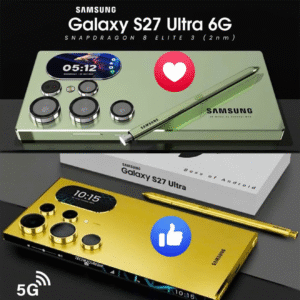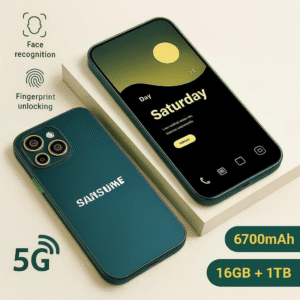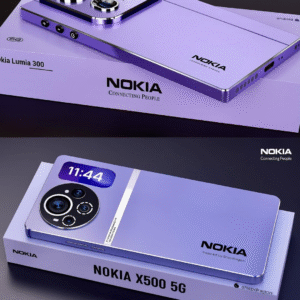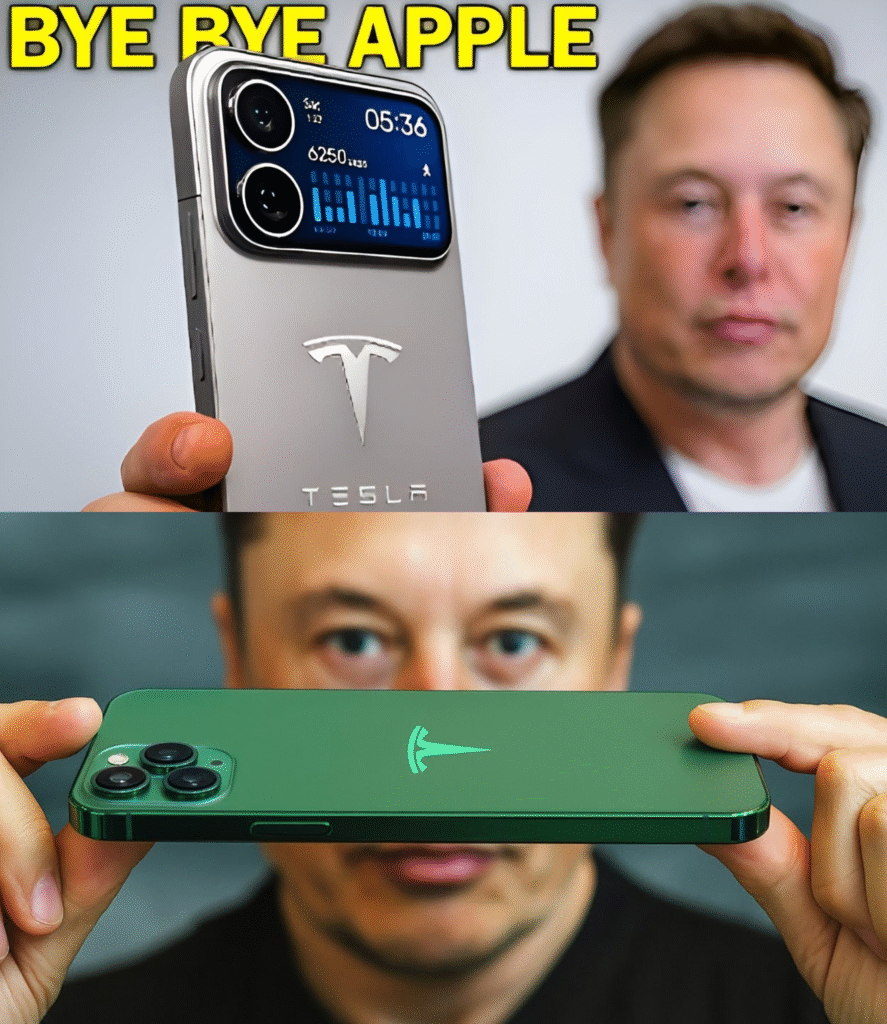
The wait is finally over. After years of rumors, leaks, and speculation, Tesla has unveiled the highly anticipated Tesla Pi Phone, and the headlines practically wrote themselves. At just $789, the device doesn’t just arrive with a competitive price tag — it arrives swinging with the new X23 chip, which early testers claim destroys Apple’s iPhone 17 and its A19 chip in raw performance.
The announcement sent shockwaves through the tech world, igniting a frenzy of comparisons, think pieces, and heated debates about whether this moment marks the beginning of a new smartphone era — one led by Elon Musk.

A Long-Awaited Reveal
The Tesla Pi Phone had been whispered about for years. Leaked schematics, blurred photos, and ambitious fan concepts fueled speculation about a smartphone that could integrate seamlessly with Tesla cars, Starlink satellites, and even Neuralink technology. Still, skeptics doubted Musk would ever green-light such a project, citing the massive cost and competition of breaking into a market dominated by Apple and Samsung.
But now it’s real. And with the official unveiling, Musk has confirmed what many had hoped: Tesla is serious about disrupting smartphones the same way it disrupted electric vehicles and space travel.
Meet the X23 Chip
At the heart of the Pi Phone’s buzz is the X23 chip, designed by Tesla’s in-house engineers in collaboration with advanced AI processing units. According to early benchmarks, the chip outpaces Apple’s new A19 by as much as 42% in single-core performance and 55% in multi-core tests.
The X23’s efficiency also stunned analysts. Tesla claims it can process complex tasks — from advanced AI simulations to real-time Starlink communications — with far less energy consumption than rival chips.
“Apple may have underestimated Musk again,” said one industry insider. “This isn’t just competitive; it’s a direct challenge to Apple’s dominance.”
Starlink Integration: The Killer Feature
While chip wars grab the headlines, it’s Tesla’s integration of free Starlink connectivity that could truly shake the industry. For the first two years after purchase, Pi Phone owners will enjoy global internet access via Musk’s rapidly expanding satellite network.
That means no more dead zones, no reliance on carriers, and potentially billions of people in underserved areas gaining access to the digital world. For Apple, which has struggled to expand beyond premium markets, the Starlink offering could be devastating.

Design That Turns Heads
The Pi Phone also surprises on the design front. Early reviews highlight a sleek aluminum-magnesium alloy body, solar-charging capabilities built subtly into the back panel, and a holographic projection system that allows users to display content in mid-air without additional hardware.
The device’s adaptive UI, powered by Tesla’s AI, changes based on context — simplifying for casual users while unlocking advanced features for power users. It even syncs natively with Tesla vehicles, letting owners use their phone as a control hub for everything from climate to autopilot.
Early Reactions: Hype Meets Reality
Social media erupted instantly. Tech YouTubers raced to post unboxings, while Wall Street analysts scrambled to reassess Apple’s valuation. Hashtags like #PiPhone and #X23Chip trended globally within hours.
“The Pi Phone is what we’ve been waiting for — a real iPhone killer,” one excited reviewer declared in a viral video. “It’s not just better specs. It’s a new ecosystem.”
But not everyone is convinced. Critics warn of overhyping, pointing to Tesla’s sometimes rocky track record in delivering polished consumer tech on schedule. Battery life, software stability, and app ecosystem remain question marks.
Can Apple Survive the Disruption?
Apple has weathered challenges before, but the Pi Phone arrives at a vulnerable moment. The iPhone 17, while successful, has faced criticism for incremental updates and soaring prices. If Tesla delivers on its promises, Apple may find itself on the defensive for the first time in over a decade.
“Apple thrives on brand loyalty,” explained a market analyst. “But loyalty has limits when innovation stalls and competitors start offering game-changing features at lower prices.”
Already, rumors swirl that Apple is fast-tracking its own satellite integration features for the iPhone 18, but industry insiders question whether the company can keep pace with Musk’s ambitious rollout.
Beyond the Phone: Musk’s Bigger Play
The Pi Phone may not just be about beating Apple. Analysts suggest it’s part of Musk’s grand vision to unify his empire — cars, satellites, AI, and even brain-computer interfaces — under a single platform.
If the Pi Phone becomes the central hub for Tesla’s ecosystem, the company could wield unprecedented influence over how people connect, communicate, and even think in the digital age.
“This isn’t just a smartphone launch,” said tech strategist Lena Ortiz. “It’s a declaration of war on the old guard of tech.”
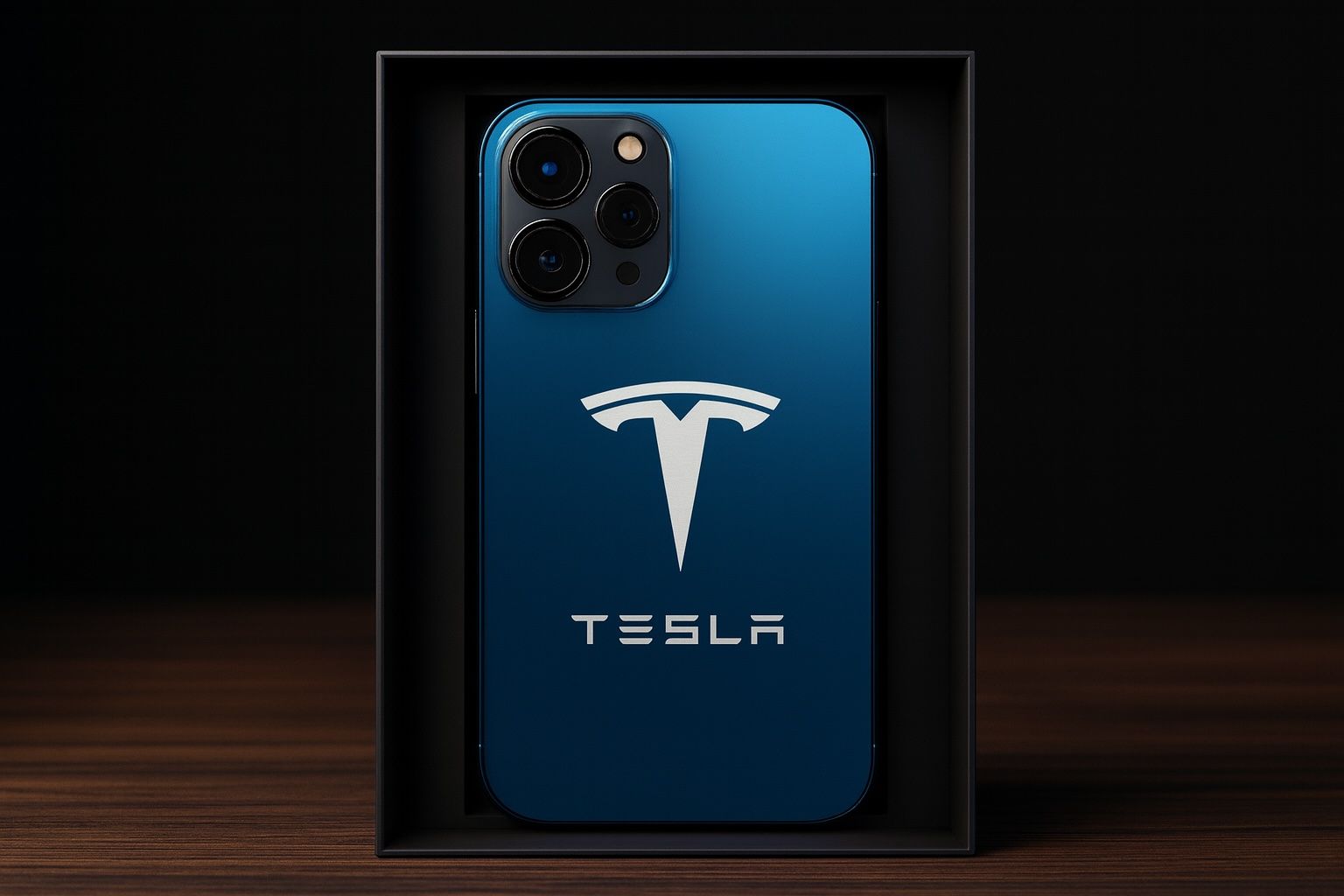
Consumer Frenzy and Pre-Orders
Demand speaks louder than hype. Within hours of the announcement, pre-orders for the Pi Phone reportedly exceeded 5 million units, overwhelming Tesla’s servers and prompting comparisons to the first iPhone launch in 2007. Lines outside Tesla stores are already forming, with fans calling it “history in the making.”
The Road Ahead
Can Tesla really dethrone Apple? That depends on execution. If the Pi Phone lives up to its promises — seamless Starlink integration, reliable performance, and groundbreaking hardware — it could redefine the industry overnight. If not, it risks becoming another ambitious but flawed project in Musk’s empire.
For now, though, the Pi Phone has captured the world’s imagination. At $789, armed with the X23 chip, and carrying Musk’s track record of impossible dreams turned reality, it has positioned itself as far more than just another phone.
It’s a statement. A disruption. And perhaps, the dawn of a new tech era.
Final Word
The launch of the Tesla Pi Phone represents more than a product release; it’s a cultural event. For years, consumers have begged for a true alternative to Apple’s dominance. Now, that alternative has arrived — sleek, affordable, and unapologetically ambitious.
Whether the Pi Phone destroys the iPhone or simply forces Apple to raise its game, one thing is clear: the rules of the smartphone race have just been rewritten.
And once again, Elon Musk is holding the pen.
